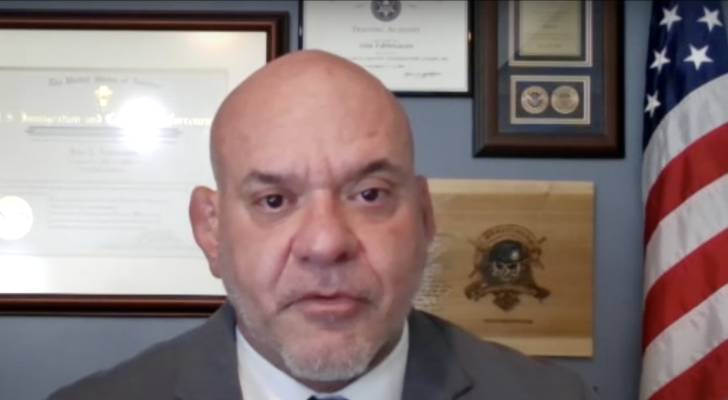
Three Denver-area businesses face a combined $8 million in fines for allegedly employing unauthorized migrant workers in contravention of employment law.
U.S. Immigration and Customs Enforcement (ICE) special agent Steve Cagen told Fox31 News that the fines are designed to uphold the law and “promote a culture of compliance."
Don’t miss
- I’m 49 years old and have nothing saved for retirement — what should I do? Don’t panic. Here are 5 of the easiest ways you can catch up (and fast)
- You’re probably already overpaying for this 1 ‘must-have’ expense — and thanks to Trump’s tariffs, your monthly bill could soar even higher. Here’s how 2 minutes can protect your wallet right now
- Gain potential quarterly income through this $1B private real estate fund — even if you’re not a millionaire. Here’s how to get started with as little as $10
“The employment of unauthorized workers undermines the integrity of our immigration system and puts law-abiding employers at a disadvantage,” he said.
The agency announced the fines publicly on X.
Who was fined and why
ICE said CCS Denver, Inc. — a commercial cleaning and facility maintenance company — knowingly hired and employed at least 87 unauthorized workers. It faces the largest fine: $6.19 million.
According to ICE, Denver’s PBC Commercial Cleaning Systems, Inc. demonstrated “a pattern of knowingly employing at least 12 unauthorized workers.” It was fined nearly $1.6 million.
Read more: Want an extra $1,300,000 when you retire? Dave Ramsey says this 7-step plan ‘works every single time’ to kill debt, get rich in America — and that ‘anyone’ can do it
Green Management Denver was fined $270,195 after ICE identified 44 unauthorized employees.
ICE said its enforcement actions follow workplace audits. John Fabbricatore, a former field office director for ICE. said such audits have been going on for decades.
“They performed an I-9 audit in which they found multiple Social Security number (probably) mismatches and no matches,” Fabbricatore told Fox31.
“So, they went through with a civil violation of that and fined these companies for employing people who are unlawfully present in the United States and unauthorized to work (there).”
Undocumented workers pay a price
While the businesses face financial consequences from such audits, undocumented workers pay a high price on the job. Here’s how they’re typically impacted.
Wage theft
When employers knowingly hire unauthorized workers, they sometimes exploit that status to skirt labor laws, resulting in wage theft.
According to a report from the Economic Policy Institute, workers lose over $15 billion each year due to minimum wage violations alone — a burden that disproportionately affects immigrant and undocumented workers.
Benefits loss and job instability
Undocumented workers are rarely offered employee benefits like health insurance, paid sick leave or unemployment protections.
Their precarious legal standing often prevents them from reporting labor violations like unsafe conditions, wage theft or harassment.
For many, this is due to fear of retaliation or immigration consequences, including deportation.
But some workers also have visas tied to a specific employer, meaning that employer controls their visa status along with their livelihood.
Financial strain and tax implications
Although many undocumented workers pay taxes — often through Individual Taxpayer Identification Numbers (ITINs) — they’re ineligible for many public benefits funded by those taxes.
They’re also more likely to face budgeting strain due to unpredictable income, lack of formal employment contracts and vulnerability to sudden job loss during enforcement actions.
What to read next
- Don’t have the cash to pay Uncle Sam in 2025? You may already be eligible for a ‘streamlined’ handshake with the IRS — here’s how it works and how it can potentially save you thousands
- Robert Kiyosaki warns of a ‘Greater Depression’ coming to the US — with millions of Americans going poor. But he says these 2 ‘easy-money’ assets will bring in ‘great wealth’. How to get in now
- Here are 5 ‘must have’ items that Americans (almost) always overpay for — and very quickly regret. How many are hurting you?
This article provides information only and should not be construed as advice. It is provided without warranty of any kind.